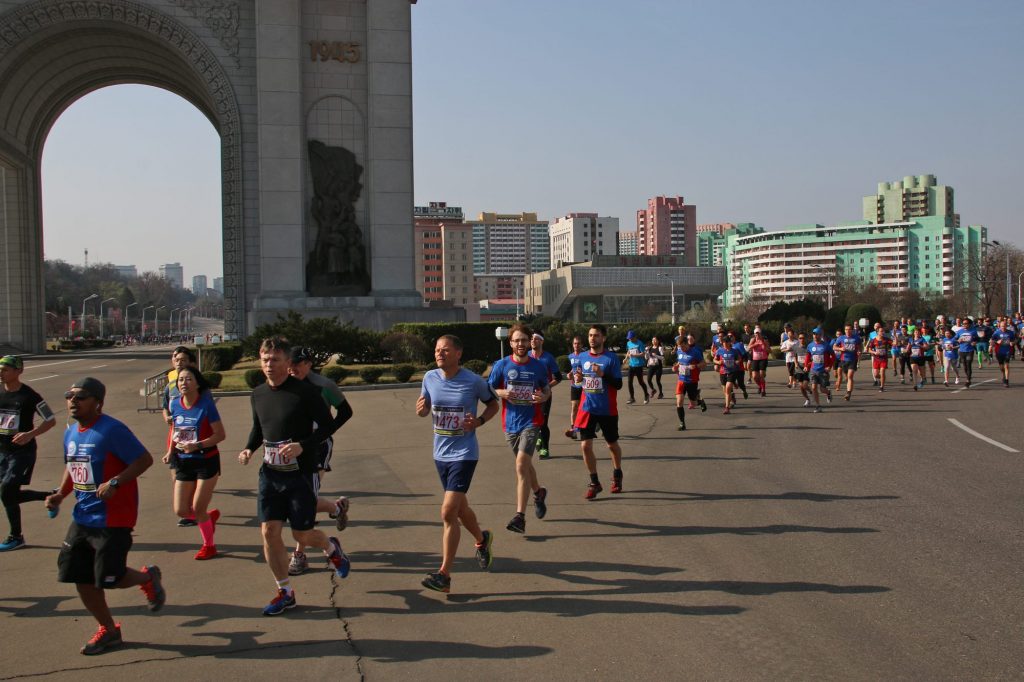What Travel to North Korea Says — And Doesn't Say — About Adventure Travel

Skift Take
 Editor's Note: Skift launched a series, Gateway, as we broaden our news coverage geographically with first-hand, original stories from correspondents embedded in cities around the world.
Editor's Note: Skift launched a series, Gateway, as we broaden our news coverage geographically with first-hand, original stories from correspondents embedded in cities around the world.
We started with regular reports several times per month from tourism hubs Beijing, Singapore and Capetown. Gateway Beijing and Gateway Singapore, for example, signify that the reporters are writing from those cities although their coverage of the business of travel will meander to other locales in their regions. Read about the series here, and check out all the stories in the series here.
Traveling to potential dangerous destinations can be fun – until tragedy strrikes.
The story of American Otto Warmbier is an adventure traveler’s nightmare, triggering an “I told you so” tale from conservative friends and worried parents. Going to a place that sounds like a dorm room dare – the Democratic People’s Republic of Korea (DPRK), or North Korea – looks audacious on paper, but probably shouldn’t have been in actuality.
Thousands of foreign tourists, including Americans, who are officially warned not to travel to the North Korea, visit the country every year, the lure of a little-seen, forbidden kingdom drawing the offbeat traveler and the backpacker bored of banana pancakes and muesli in paradise.
“The Department of State strongly warns U.S. citizens not to travel to North Korea/the Democratic People’s Republic of Korea (DPRK),” the U.S. State Department's website states categorically. “At least 16 U.S. citizens have been detained in North Korea in the past 10 years. North Korean authorities have detained those who traveled independently and those who were part of organized tours. Being a member of a group tour or using a tour guide will not prevent North Korean authorities from detaining or arresting you."
The Arrest
Warmbier was arrested at Pyongyang International Airport in January 2016 as he was preparing to depart the country, while traveling with a group organized by Xi’an, China-based Young Pioneers Tours. North Korean authorities accused him of attempting to steal a poster off the wall of a Pyongyang hotel.
In March 2016, Warmbier was sentenced to 15 years of hard labor for “hostile acts,” in a show trial in which the young American visibly trembled during a televised apology.
In June, he was returned to U.S. custody in a coma, which the North Korean government claimed was the result of a case of botulism complicated by Warmbier’s consumption of a sleeping pill. There was abundant skepticism about that claim.
He died in Ohio days after his return, inflaming an already volatile situation between the U.S. and North Korea which do not have diplomatic relations and have sparred over North Korea's missile tests and bombastic rhetoric.
In 2009, it took a trip by former President Bill Clinton to free journalists Laura Ling and Euna Lee when they wandered over to North Korean territory from China and were arrested.
Countries such as North Korea are also unlikely to have easy access to modern medical care four tourists in case of emergency. Others may be in the throes of a civil war or similar unrest, where travelers may find themselves in areas out of government control – which may or may not cause additional risk.
Similarly, travel insurance for these destinations may be unavailable, and travel to those destinations may also impact normal insurance policies if they are seen as being too high-risk.
Both the Obama administration’s easing of travel restrictions on Cuba, followed by the Trump administration’s revision of those moves, demonstrates how a shift in political winds can lead to rapid changes in travel policy status. But while government to government relations with Cuba were hostile until recently, on the street level, only Americans with pointed political motives were likely to run into trouble. The same was true in places regarded as current or former enemies such as Vietnam, before the re-establishment of diplomatic relations in 1995.
Adventure Travel Isn't Monolithic
Sometimes adventure travel -- in terms of vacations off the beaten path -- is in the eyes of the beholder. Tunisia might have been off the beaten path for many Americans but it had perennially attracted tons of British and Russians.
Millions of people travel to so-called out-of-the way destinations, everywhere from Myanmar to Iran, every year and have totally memorable experiences.
Of course, adventure travel isn't just tied to out-of-the-way places; it can also be a bike tour or an Amazon trek.
But the Warmbier case shows why trips to “forbidden” and “wild” places still represent a significant risk, not just for the travelers, but especially the operators that arrange such outings. There’s little or no official cover for citizens and tour operators from countries that do not have diplomatic relations with the place being visited.
Although medical emergencies and their treatment can be a concern for any traveler, it is the special circumstances of political imprisonment, or non-political crime such as kidnapping, that are greater worries once one steps too far off the travel beaten path.
“Generally on all the trips we cover, and this includes Afghanistan, Pakistan, Chechnya, Iraq, Iran, Somaliland, Sudan, and Socotra (Yemen), the biggest risk we see are either road traffic accidents or risks due to trekking, skiing, horse riding, or other outdoor activity,” said James Wilcox, founder of Untamed Borders, which serves the aforementioned countries but doesn’t dabble in North Korea.
Following Warmbier’s death, Young Pioneers, which doesn't have a stellar reputation, announced it would no longer accept Americans on their trips, despite no such official policy from the North Korea government side.
“Considering these facts and this tragic outcome we will no longer be organizing tours for U.S. citizens to North Korea,” Young Pioneers said in a statement posted to its website.
North Korea travel market leader Koryo Tours, founded in the early 1990s, made a similar online statement: “We are discussing this matter frankly with our Korean travel partners, and the foreign organizations active in Pyongyang that we liaise with, and are currently reviewing the issue of U.S. citizens traveling to North Korea.”
Despite their situation with U.S. citizens, both Young Pioneers and Koryo Tours continue to operate North Korea tours for other nationalities. Operated by nationals of European nations, in August Young Pioneers will organize six- and seven--day Liberation Day trips, celebrating the end of World War 2 in Korea.
Koryo will depart for its week-long Victory Day tour later in July.
Like show business, in travel, especially off-beat travel, the tour must go on.




